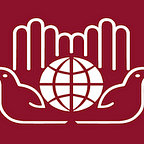Summary of Webinar: What do Children Need? A Conversation on Ukraine Mental Health and Psychosocial Support Response
By: Emily Furfaro, Brianna Gadaleta, and Meghan Stevens
New York — On May 24, 2022, the Institute of International Humanitarian Affairs at Fordham University together with UNICEF and MHPSS.net presented the webinar: What do Children Need? A Conversation on Ukraine Mental Health & Psychosocial Support Response. The panelists included: Dr. Lynne Jones, OBE, a child and adolescent psychiatrist, writer, researcher, and relief worker; Professor Oleg Chaban, a psychiatrist and psychotherapist, Doctor of medical science, head of the medical psychology, psychosomatic medicine and psychotherapy department at Bogomolets National Medical University, Kyiv, Ukraine, president of Ukrainian Psychosomatic Medicine Association; Dr. Iryna Frankova, a clinical psychologist and assistant professor at the medical psychology, psychosomatic medicine and psychotherapy department at Bogomolets National Medical University, Kyiv, Ukraine, chair of European College of Neuropsychopharmacology Traumatic Stress Network. The webinar was moderated by Mario Gagliato, PhD, who is currently supporting UNICEF Poland MHPSS Response to Ukraine Humanitarian Crisis. He has extensive field experience responding to humanitarian emergencies worldwide as a Global Humanitarian Advisor with focus on Mental Health, Protection and Psychosocial Support.
Throughout the webinar, the speakers emphasized the importance of community and familial connection for children affected by war. Dr. Lynne Jones outlined the lessons she has learned through her work in different conflict zones, including Bosnia and Kosovo. The first major lesson she presents is the idea that children experience better mental health outcomes and overall well being when they stay with their parents and those they love. As Dr. Jones says, “separation is bad for the child.” Being embedded in a supportive community allows children to develop properly and cope with hardship. In fact, the effects of being lost or separated from one’s family may be more significant and enduring than exposure to the actual conflict itself, according to Dr. Jones. Dr. Frankova also touched on the importance of connection. Establishing connections with family and other children “helps children establish control over the situation.” When aiming to help children cope with traumatic events, both Dr. Jones and Dr. Frankova emphasized the importance of fostering connection rather than solely focusing on the individual as an isolated unit to pathologize.
The panelists also considered the influence of educational experience on childhood development within conflict zones. Panelists concurred that educational institutions serve as an integral space for children’s socialization. Therefore, when education is disrupted, whether by war or other events, there are resounding emotional and psychological impacts on young students. In recent times, the Covid-19 pandemic has initiated a universal break in continuous education, taking a major toll on students’ mental health. In the webinar, Professor Oleg Chaban delved deeper into the impact of educational interruption and its role in fostering feelings of isolation. He cited the Ukrainian situation as a more conclusive crisis in educational interruption as “teachers are also massively on the move… there’s mass migration and there is a huge problem of continuing education.” According to UNICEF, more than 75,000 children are fleeing Ukraine every day, accounting for 1.5 million of Ukraine’s 5.7 million school-aged children, aged three to seventeen. Such migration combined with disrupted family structures contribute to a lack of stability in education. Children are more susceptible to anxiety and stress as their plans become dictated by survival rather than success.
The panelists emphasized that connection is vital to the positive mental health outcomes of children in conflict zones like Ukraine. The disruption of education, along with many other factors, can make this connection substantially more difficult. This knowledge will hopefully allow aid workers to develop programs better equipped to address children’s mental health in times of conflict.
The full webinar is available to watch on Youtube:
